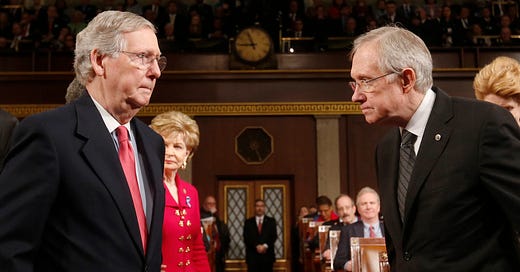This week in History Club, we’ll be talking about the filibuster.
The filibuster is once again a partisan talking point and a major news story (see here, here, here, here and here).
What is the filibuster? What role has it played in American democracy? Is it a “racist relic” of the American past, as some allege? Is it necessary, or should it be eliminate…



